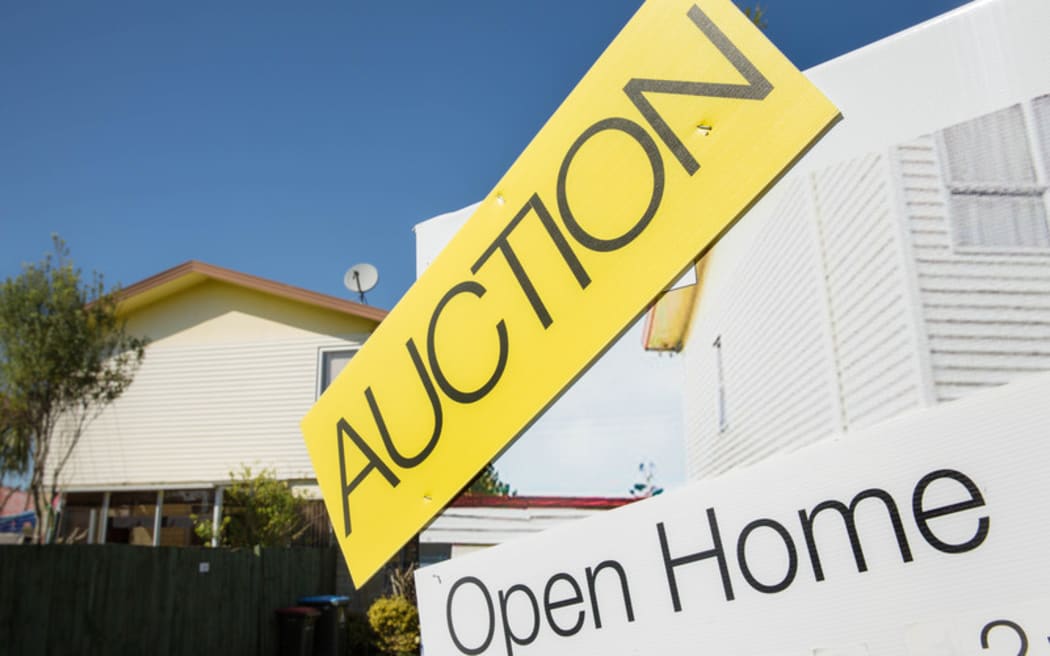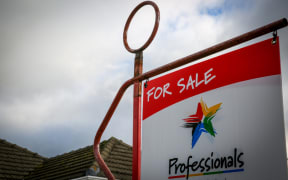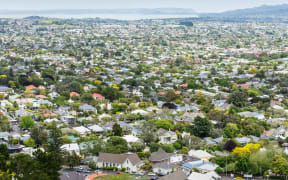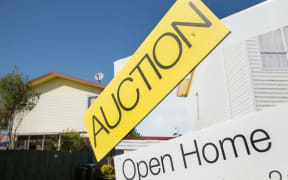House prices continue to grow, but at a slower pace, as buyers downsize and shift to the regions.

Photo: RNZ / Cole Eastham-Farrelly
The Quotable Value House Price Index rose by 0.4 percent in the three months to April.
Annual growth was 2.7 percent compared with 7.6 percent growth rate a year ago.
QV general manager David Nagel said the market is two tiered with Auckland falling but demand and prices in the regions holding up.
"While the rate of national value growth continues to slow year on year, our more affordable regions continue to attract plenty of buyer demand."
Auckland values alone were down 1.5 percent for the year, but values grew by around 8 percent in Gisborne, Horowhenua and Rotorua, and double digits in parts of the South Island.
Mr Nagel said Auckland buyers were opting for smaller, more affordable, properties.
"We are starting to see a change in the type of properties selling with a general trend toward smaller, lower-value, one and two bedroom properties, which is leading to a drop in median sales prices across the Auckland region recently."
He said the cycle of property value growth was ending and the country would soon see a slowdown nationwide.
Recent policies, such as extending the brightline test, had pushed some property investors out of the market, he said, but the government's decision to not go ahead with a Capital Gains Tax could encourage some to re-enter.
Meanwhile, figures from realestate.co.nz show the mean asking price for a house in Auckland dropped in April to below $900,000 for the first time since 2016.
Top end of the market seeing a dip
Realestate.co.nz spokesperson Vanessa Taylor said Auckland has now had two years of stable pricing, and conditions were returning to those before the frenetic market of 2014 to 2017.
She said even though there were fewer listings, houses were sitting on the market for longer.
Ms Taylor told Morning Report the drop in Auckland could be down to the loan-to-value ratio coming in quite heavy during 2018, despite easing up at the beginning of this year.
On 1 January this year the Reserve Bank reduced restrictions on mortgage lending.
Up to 5 percent of new lending is allowed to be to investors with deposits of less than 30 percent. Before that it was 35 percent.
"If there's that lack of lending out there or that ability to get the money ... it does make it harder for buyers to buy if the banks aren't going to lend them the money," Ms Taylor said.
My Taylor also mentioned the The Overseas Investment Amendment Act as playing a part in the slower market, which came into force on 22 October last year.
The changes prevent certain overseas people from buying residential property in New Zealand.
However, Ms Taylor said it could also just be because less people are turning up to open homes so people are taking a more considered approach.
"We definitely saw a lot of frantic buying in that earlier stage 2015-16."
Despite the slower market, she said the low end of the market, the entry-level first home buyers were still really busy.
"It's the top end of the market starting to see that dip."
Ms Taylor said the prospect of a capital gains tax did make people put their buying plans on hold and that now that that decision was off the table it was starting to pick up again.
With the 2020 election coming up, Ms Taylor believes people will again sit and wait to see what happens.





